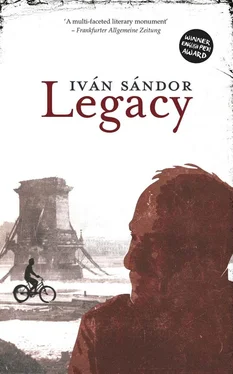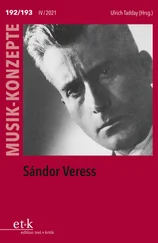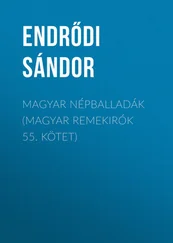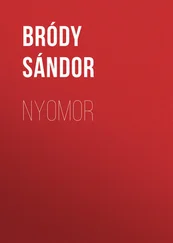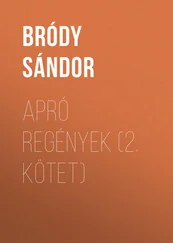Becher links arms with Carl Lutz and they set off towards the adjoining room.
Gertrud tells Gizi, says Mother, that the Colonel had behaved as if something were gong on between you, and you yourself looked flirtatiously at him as if there had been something on which to look back — rather exciting, I must say, darling.
We did meet, Gizi says to Gertrud but she does not say where or that when SS-Obergruppenführer Hans Jüttner and SS Standartenführer Kurt Becher got back into the military Adler on the highway from Hegyeshalom she had got out of the car to look along the ditches to see whether one of the bodies might be Bőzsi, and Károly had to pull her back to the car.

SS Obersturmbannführer Adolf Eichmann steps down from his armoured automobile at the gate to the ghetto in Dohány Street in the city centre. The sentries — two policemen with rifles and two Arrow Crossers with submachine guns — salute.
He passes by the synagogue garden, casting a glance at the dead bodies piled on top of each other at the foot of the iron railings. It is sleeting. He turns up the collar of his cloak and sets off for the parallel road, Wesselényi Street, turning down the connecting road of Síp Street. He checks the readiness of the tanks parked in front of the Jewish Council’s building. A first lieutenant with an Arrow Cross armband presents himself, awaiting instructions. Eichmann gives orders that within a few hours, at a time-point to be communicated by the Reich’s Chancellery, they should make a start on liquidating any survivors. Nothing is lost, he says; the Führer’s new weapon is being readied for deployment. The first lieutenant reports that he has been given orders to attack the Swedish and Swiss Embassies at six o’clock the next morning. He accompanies Eichmann back to the ghetto gate. The SS Rottenführer who is the driver of the armoured car is smoking and chatting with the sentries. On the arrival of the first lieutenant they stub out their cigarettes on the palms of their hands.
The car is driven back to headquarters. In the Majestic Hotel Eichmann calls Joseph Goebbels, Reich Minister of Propaganda and Plenipotentiary for Total Mobilization, on a direct line. Himmler is sojourning at some unknown place; a deputy relays his order that the planned action in Budapest should be agreed with Eichmann’s immediate superior, SS Standartenführer Kurt Becher. Eichmann seeks Becher by telephone and is informed that he cannot be reached; he is in discussions at the Gellért Hotel.
I walk past the railings of the garden of the Dohány Street synagogue, reading on the memorial plaques the list of names of those who perished. I step into the yard.
Whose tracks am I following up?
My own? Adolf Eichmann’s?
I walk to Dob Street, the next block on from Síp Street. The entrance to number 4 now looks exactly the same as it did ten years ago at the time I learned from the Register of Births, Marriages and Deaths that my maternal grandfather was born there in 1871 and took a walk round the area. Back then the vaulted entrance had given me the impression that in the nineteenth century a horse and cart might well have been able to stop in the gateway, and I get the same impression now, although the dustbins would probably have got in the way.
I find among old family photographs a small advertisement, clipped from a newspaper, about the dedication of Grandfather’s gravestone. I don’t know which newspaper that would have been, perhaps the Esti Kurir ( Evening Courier ), as that was what Grandfather used to read. That black-framed announcement was all Mother kept.
Last year I had a stone cover made for my grandparents’ grave, as we had always had to weed it once a year, and I don’t want my daughter to be left with that chore. The gravestone itself is a fine marble block, and Mother had Grandmother’s name incised under Grandfather’s, with other names being added since.
I file away in the appropriate folder the newspaper announce ment about the dedication of the gravestone. I clip out of a documentation volume a portrait shot of Adolf Eichmann and slip that, too, into the same file. I note that Eichmann was born on 19 March 1906, so that in 1944 he was thirty-eight years old and an SS Ober sturmbannführer. His line of duty was the racial purification of Europe, the total eradication of Europe’s Jewry. In the photograph his right eye is squinting slightly, the left one even more, the way he holds his head not exactly military.
I take a number 49 tram to Gellért Square. I had arranged to meet Györgyi in the hotel’s tearoom.
I get there half an hour early, which gives me enough time to walk around the ground which, while it was not my footsteps that have left traces there, I still regard as being part of my exploratory journey.
The hotel’s hall is neutral yet dignified; foreigners talking at reception. In the restaurant on the mezzanine I am met by a waiter in a lilac-coloured dinner jacket. Thank you, I say, all I’m doing is having a look. I am satisfied with that ‘all I’m doing’, which corresponds with my sense that, Oh, sir, all I’m curious about is what could those few steps have been like that Adolf Eichmann — accessory to the murder of many millions of people, as well as an accessory to reducing Budapest to ruins — took. That’s all, as well as the fact that there was a time when he passed this way just like I am just passing by this way. What, I wonder, could he have seen when casting a glance through the enormous windows at the Danube, the ruined buildings, not to say the tank traps and trestles, the big guns guarding the head of the bridge, which it is quite certain were standing there, because an esteemed colleague, who, by the way, ate dinner here, recorded as much in his diary. That’s all, sir, that what it’s about, that’s all …
The furnishings in the conference room are salmon pink.
Györgyi called yesterday. I’m back, she said in a voice that did not seem to be stating that she was back but was asking whether I was back, as if she knew that I was travelling and, furthermore, knew precisely where I was and whether I was there or already here; as if she were familiar with the feeling of uncertainty that, for me, is the everyday state of the zone between not remembering and not forgetting, and she had similar feelings; yes, as if she had also not got back from an obligatory trip on which she had substituted for a teacher colleague but from a journey that was real enough but nevertheless could not be called that.
It has been obvious for quite a while that Györgyi is following me and that is how she is trying to find a way into the past, yet the way she said I’m back was that by way of her voice she implied that I, too, wanted her to follow me.
Adolf Eichmann enters the restaurant. The army officers with Arrow Cross armbands jump up just as before when Kurt Becher arrived. Eichmann does not deign to greet them.
Gizi, Gertrud and Lutz are drinking their coffees. Another SS officer, thinks Gizi. Gertrud has her back to the newcomer. Gizi raises the coffee cup to her lips. She has a vague recollection of having seen the high-ranking officer before. He’s not a hardened soldier; his look speaks more of an intellectual and as if he was not seeing what he was looking at. Gizi supposes, He’s not looking at me but at something behind me, not the Danube, though. Maybe he’s thinking of his family; he’s around forty, so no doubt he has a wife and maybe children.
‘I did not understand Becher,’ Carl Lutz will write in his diary.
Why would he want to meet me another time? I have learned since then that for the sake of his business transactions he was in direct contact with Himmler, who wished to receive a cut of the pickings from the Manfred Weiss industrial conglomerate in Hungary. Becher placed himself at his service and in return Himmler had suggested that the Budapest ghetto ought not to be reduced to ashes, which was what Eichmann was ready to do. With an eye to the future, Himmler had already started to distance himself from Hitler, and he exploited the fact that although the extermination of Europe’s Jews was Eichmann’s particular province, he ranked merely as an Obersturmbannführer and therefore had to treat Standartenführer Becher as a superior officer.
Читать дальше
